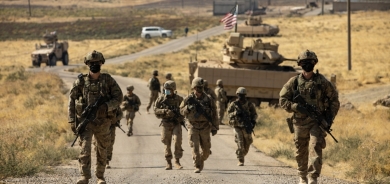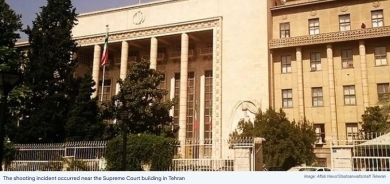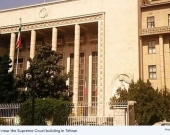U.S. eyes options for Afghanistan after Congress cuts aid

(Reuters) -
The Obama administration is considering ways to ensure future financial assistance for Afghanistan after U.S. lawmakers halved development aid to the country.
In a massive spending bill signed into law on Friday by President Barack Obama, lawmakers provided $1.12 billion to Afghanistan for fiscal 2014 for overall civilian assistance, a 50 percent reduction from the previous fiscal year. It was still unclear, however, how much aid the country would actually receive for 2014.
U.S. officials said they were looking at the details of the bill, and would also explore if they could use unspent money from the previous year or from elsewhere in the budget to increase the amount of funding for Afghanistan.
"While overall levels for the major civilian assistance accounts have been reduced, the bill itself does not include any specific cap for Afghanistan," an official at the U.S. Agency for International Development (USAID) said on condition of anonymity.
"Over the next few months, we will finalize bilateral assistance totals for the fiscal year," using a summary that accompanied the legislation as a guide, the official said.
The summary also suggests that USAID and the State Department could supplement the $1.12 billion with unspent funds from fiscal 2013, but it was not immediately clear how much flexibility that might give them.
"While everyone was expecting a cut, no one was expecting it to be 50 percent. That sets a dangerous precedent that might be hard to reverse in coming years," said Andrew Wilder, who directs Afghanistan and Pakistan programs at the U.S. Institute of Peace and spent years working in the region.
USAID, which along with the State Department administers development and assistance programs overseas, had asked for $1.67 billion for Afghanistan in the administrations budget request for fiscal 2014. The overall aid request for fiscal 2014 for Afghanistan was $2.19 billion, according to U.S. officials.
A major cut in U.S. assistance could endanger plans to continue health, education, farming and other aid programs in the desperately poor country. It could also stoke uncertainty as the United States and other NATO countries move to end their long war in Afghanistan, and as Washington seeks an agreement that would permit some U.S. forces to stay there beyond 2014.
The reduction sends a signal to other donor nations, which gathered in Tokyo in 2012 to announce their intentions to provide aid to Afghanistan for years to come. While the United States did not pledge a specific amount for future aid, it promised to seek aid near current levels of just over $2 billion at least through 2015.
Wilder said the administration may not be able to provide much more than the $1.12 billion that lawmakers earmarked for Afghanistan, at least in part because levels of global civilian aid have already been set. "I think (the administration) might be trying to put a brave face on things because they do not want to alarm Afghans," Wilder said.
The sharp reduction in aid reflects frustration in Congress with State and USAIDs management of assistance to Afghanistan, and with the Afghan government itself. Aid programs have been plagued by reports of waste and fraud since 2001.
Administration officials have been unusually candid in voicing their frustration with Afghan President Hamid Karzai, who has refused to sign a bilateral agreement that would enable the United States to keep a modest force in Afghanistan beyond this year, even after Afghan elders approved the deal.
"U.S. policymakers should be careful not to punish the Afghan people, or undermine U.S. strategic interests in Afghanistan, based on their frustrations with an Afghan president who should be stepping down following presidential elections in less than three months," Wilder said.
National elections in April could bring Afghanistan a new leader for the first time since 2001.
U.S. lawmakers have expressed concern that oversight of U.S. assistance would become even more difficult as troops withdraw, and if security further deteriorates.
In the same bill, in response to those concerns, lawmakers provided funding for the inspector general offices at State and USAID and for the office of the Special Inspector General for Afghanistan (SIGAR) at the level requested by the administration.
The inspector general offices at the State Department and USAID and SIGAR conduct reviews of U.S.-funded programs overseas, with the goal of ensuring U.S. taxpayers money is not misspent.
(Reporting by Missy Ryan; Editing by Toni Reinhold)














